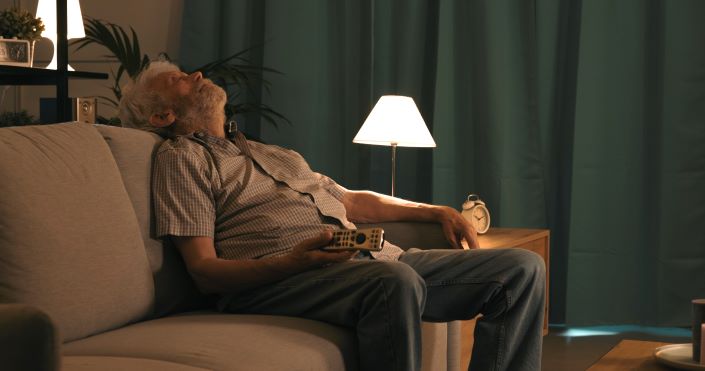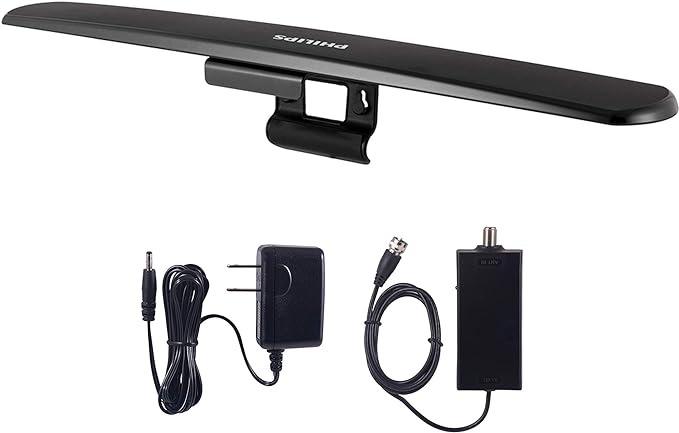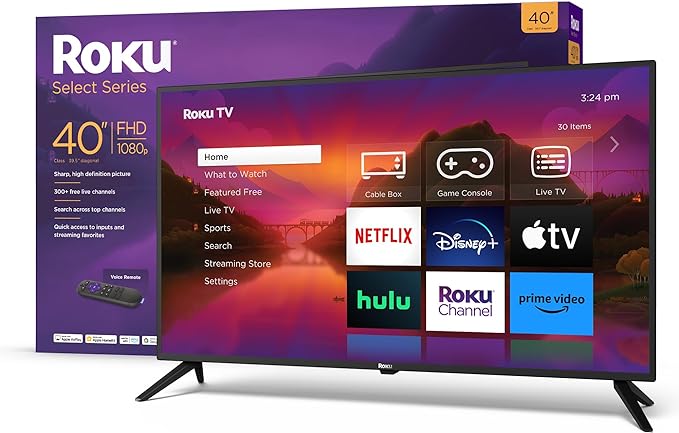Alzheimer’s television Watchers
For many of us baby boomers, we grew up with television as our main source of entertainment. We spent many of our evenings and weekends watching television.
I recently learned studies were reporting that excessive television watching can lead to Alzheimer’s. My thoughts on this are, that people who watch TV for several hours a day also lead a sedentary life.
This leads me to wonder, do they develop Alzheimer’s because of the sedentary lifestyle or the actual TV watching?
For many of us, watching TV has always been a regular part of our day. We remember when there were only three channels and all three of them went off the air at midnight. In our younger days, if you missed something on TV you were simply out of luck because there was no way to see it (this was long before the days of VCRs, DVD players, or DVRs).
TV was exciting for us. We often waited months for the next season of a series. Binge-watching also did not exist in our day. We found that watching television helped us pass the time and kept us from getting too bored.
In addition, many families considered a night of TV together to be their quality family time. So they would gather around the television and watch their favorite shows together.
As Dementia develops, people with the disease will begin to have trouble watching television. This usually begins before they are diagnosed. They will struggle to follow the plot in their favorite shows.
Someone who has spent the majority of their life watching TV as their main source of entertainment may become very frustrated with this new problem. They will need you to help them adjust their TV-watching routine.

Too much Alzheimer’s television watching?
When someone develops Alzheimer’s, it becomes difficult to follow many of the shows they watched before, especially more complicated ones. In addition, as the disease progresses, their attention span declines, making it more difficult to watch television for too long.
Some caregivers find their loved one will no longer watch tv at all. To them, it has become simply annoying noise with moving pictures.
Other caregivers may find their loved one sitting in front of the tv all day long, barely moving. If this is the situation in your house, it is essential to remember that sitting all day results in less walking and moving around.
The less they move around, the less they will be able to move around. The old saying “if you don’t use it, you lose it” is especially true in this situation. The last thing you want is for them to lose their ability to walk and be independent.
Try to find alternatives to sitting in front of the tv. Instead, keep them involved in helping around the house. For example, come up with chores that get them up and moving. Not only does it give them an activity, but it helps them feel needed.

Best Alzheimer’s television shows?
What shows work best for people with Dementia? Older memories are the last to go. Of course, the old tv shows work the best. Many people have been most comfortable with TV shows from their younger years.
I have found simple humor works the best. An example would be I Love Lucy. It’s easy to watch and often slapstick humor. You can learn more about the power of humor on my Laughter Blog Page.
Remember, you want calming TV shows that will leave them in a better mood.
List of shows they may like:
- America’s Funniest Videos
- Andy Griffith
- Antiques Roadshow
- Bewitched
- Bonanza
- Game Shows
- Golden Girls
- Gunsmoke
- Hallmark
- Happy Days
- Hee Haw
- I dream of Jeannie
- I Love Lucy
- Laverne & Shirley
- Lawerence Welk
- Little House on the Prairie
- Murder She Wrote
- Musicals (Oklahoma, Hello Dolly, etc…)
- My Three Sons
- Nature Videos
- Old Disneys ( Herbie the Love Bug, Nutty Professor, Dr. Doolittle, Around the World in 80 in days, pretty much all of the old actual movies )
- Perry Mason
- The Waltons


What should they not watch?
I learned many years ago that most people like animal shows. So early in my nursing career, I worked in a nursing home; I would turn the TVs in my dementia patient rooms to the Animal Channel first thing in the morning.
I walked into a patient room mid-morning to find her crying, and when I looked at the TV, I realized they had a show on the animal channel about abused animals. I felt awful, but I learned how important it was to pay attention to what was on their TVs going forward!
It is important for new caregivers to understand that often, people with Dementia will think the person on the TV can hear and see them; this is very common. You may see them answer the person on the TV, or they won’t sit in front of the TV without being fully dressed because the TV people can see them.
Remember, sometimes watching something over-stimulating on TV can bring on anxiety and lead to agitation and challenging behaviors.
Here is a list of show types they probably should not watch.
Violence
Scary
News
Drama
Anything with a plot
Loud & fast
Smart TVs & Streaming Devices
I recently discovered Smart TVs and an amplified antenna pick up many channels that people with Dementia enjoy, and the channels are streamed free.
My mother lives in a senior living apartment on a fixed income. Her monthly cable/internet bill was almost $150. So, we began searching for a way to cut the cost.
We got her a Roku Streaming TV for about $200 and an amplified antenna for $29. She now gets hundreds of channels for free, so she is getting more channels for less money. I added the link to the TV and antenna we bought.
You can find the antenna HERE and the Roku TV HERE.
You need an internet connection at home to access all the channels.
Pluto TV is Free
If you have a streaming TV, Roku, Fire Stick, or other streaming device, you can access these channels through Pluto. There are so many channels to choose from, and there are many channels for men to choose from!
Here are some of the actual channels I found on the Antenna or Pluto. These shows run 24 hours a day on these channels.
- Antenna Channel
- ME TV
- Antenna Roku Westerns
- Westerns
- Cinevault Westerns
- Film Westerns
- Bonanza
- Grit
- The Rifleman
- Classic TV
- Classic TV Families
- Cinevault Classics
- Sam Goldwyn Classics
- Carol Burnett
- Dick Vandyke
- Johnny Carson ShowRedbox Romance
- TV Land
- TV Land Sitcoms
- Happy Days
- The Love Boat
- Ed Sullivan
- Hallmark
- Spark TV
- Dove
- Faith TV
- TBN (Religious channel with great calming effect)
- BBC Food
- Food 52
- Taste Made
- Test Kitchen
- Bon Appetite
- Tiny House
- This Old House
- Home & Garden
- Bob Ross Painting Show (great calming effect)
- Love Nature
- Naturescape
- Jack Hannah
- Supermarket sweep
- Deal or No Deal
- Family Feud
- Game Show
- Price is Right
- Wheel of Fortune
- Pawn Stars
- Antiques Road Show
- Pet Collection
- Dogs
- Cats
- Matlock
- Perry Mason
Quiet Comfort: How Headphones Can Enhance TV Time for Dementia Wellness
Using headphones can help people with dementia focus better on their favorite shows. As dementia progresses, loud noises can be distracting and overwhelming.
Headphones create a quiet space, making TV time more enjoyable and less stressful. Choose comfy headphones that cover the ears to reduce outside sounds. This simple solution can make watching TV a more calming and personalized experience for your loved one.
I have these headphones in my home. They are blue tooth and are great at cutting out the sound in the rest of the house. Since they are wireless, roaming around and listening is easy. These also work great for someone with Dementia listening to videos of older music. Learn more about the effects of music on someone with Dementia HERE.
Alzheimer’s & Television RemoteS
TV Remotes have become so confusing, with way too many buttons! So, instead of your loved one struggling with it, there are a couple of simplified remote controls. I have added a link to a simple remote.
You can find the Remote HERE.
Did you know that studies have found that people with Dementia who won’t sit and watch TV alone often will sit and watch when someone is seated watching with them?
Conclusion
In conclusion, navigating television watching for individuals with Alzheimer’s requires a thoughtful approach that considers both their changing abilities and preferences. As we reflect on the role of TV in our own lives, it becomes apparent that excessive sedentary habits might contribute to health issues, but it remains unclear whether TV watching itself is a direct cause of dementia. For those facing Alzheimer’s, adjustments in TV-watching routines become necessary as the disease progresses. Caregivers may encounter challenges, such as difficulty following complex plots or a decreased attention span.
Balancing TV time becomes crucial, as excessive sitting may lead to a decline in mobility. Encouraging alternative activities that involve movement can help maintain independence. When choosing TV shows, opting for those with simple humor, such as classic favorites like “I Love Lucy,” can bring comfort and joy. However, caregivers should be mindful of the content, avoiding overstimulating shows that may induce anxiety or agitation.
Embracing technology like Smart TVs and streaming devices offers a cost-effective way to enhance the TV-watching experience, providing access to a variety of channels. Additionally, simplified remote controls can make navigating the TV more accessible for individuals with dementia. The journey through Alzheimer’s and television watching is unique for each person, so adapting strategies to suit individual needs and preferences is key. By understanding the impact of TV on their well-being and making thoughtful choices, caregivers can contribute to a more enriching and enjoyable experience for their loved ones.
Hi, I'm Larea, I am a Registered Nurse specializing in Dementia Care, with 30 years of experience supporting dementia patients and their families. Over the years, I have provided care in diverse settings, including homes, hospitals, nursing homes, assisted living facilities, and hospice. My passion is guiding caregivers, sharing my knowledge and experience to help them navigate the challenges of dementia care with confidence and compassion.













0 Comments